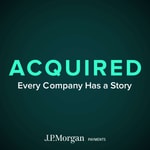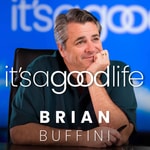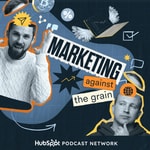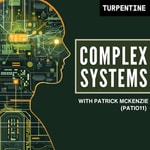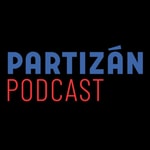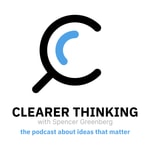Not Boring Radio – Details, episodes & analysis
Podcast details
Technical and general information from the podcast's RSS feed.

Not Boring Radio
Packy McCormick
Frequency: 1 episode/9d. Total Eps: 15

Recent rankings
Latest chart positions across Apple Podcasts and Spotify rankings.
Apple Podcasts
🇺🇸 USA - technology
11/07/2025#91🇺🇸 USA - technology
10/07/2025#76🇩🇪 Germany - technology
04/06/2025#94🇬🇧 Great Britain - technology
03/06/2025#97🇺🇸 USA - technology
04/05/2025#93🇺🇸 USA - technology
03/05/2025#86🇺🇸 USA - technology
02/05/2025#92🇨🇦 Canada - technology
28/04/2025#90🇬🇧 Great Britain - technology
15/04/2025#90🇺🇸 USA - technology
15/04/2025#84
Spotify
No recent rankings available
Shared links between episodes and podcasts
Links found in episode descriptions and other podcasts that share them.
See allRSS feed quality and score
Technical evaluation of the podcast's RSS feed quality and structure.
See allScore global : 58%
Publication history
Monthly episode publishing history over the past years.
Julian Lehr, The Case Against Conversational Interfaces
Season 1 · Episode 3
mercredi 2 avril 2025 • Duration 39:07
In Episode 003 of Hyperlegible, host Packy McCormick talks with Julian Lehr about his recent essay The Case Against Conversational Interfaces and why natural language might not be the ideal way to interact with computers. Julian explains why conversational AI should complement rather than replace graphical user interfaces, and shares insights about his unique writing process.
Julian is one of the most creative writers on the internet. Go read his work at julian.digital.
Hyperlegible is sponsored by our friends at Readwise. You can find links to all of our conversations, and all of the episodes we discuss, at readwise.io/hyperlegible.
Episode Highlights:
(00:10) - Julian summarizes his essay on conversational interfaces and why they're inefficient
(02:31) - Why writing is different: "a thinking process" rather than a speed-optimized workflow
(03:08) - The "Pass the Butter Test" and the ideal human-computer relationship
(05:04) - The privacy vs. experience trade-off with AI interfaces
(07:10) - How Julian's visual approach to writing differs from traditional writers
(10:07) - Julian's unique writing process: starting with pen and paper, switching between tools
(11:22) - Using Figma as an underrated writing tool for visualizing content
(12:24) - How Julian incorporates AI into his writing process, using ChatGPT as a thinking partner
(15:18) - Discussion of AI at the OS level and predictions about browser development
(18:38) - AI as a complement rather than a replacement, inspired by StarCraft gaming interfaces
(21:01) - Sam Altman's always-on AI workflow and potential applications for writers
(30:58) - Why Julian took a two-year break from writing and his publishing goals for this year
(32:31) - The status-signaling aspect of the "thanks to" section in essays
(36:12) - Julian recommends reading his essay "The Power of Defaults"
(36:55) - Recommended reading: Kevin Kwok's "The Arc of Collaboration"
(38:15) - Key takeaway: Think of AI as a complement that unlocks new possibilities rather than replacing existing workflows
Essays and Podcasts Mentioned:
Julian Lehr: The Case Against Conversational Interfaces
- Julian Lehr: The Power of Defaults
- Kevin Kwok: The Arc of Collaboration
- David Perell: How I Write with Sam Altman
Big thanks to Jim Portela for editing!
Hyperlegible 002: Utsav Mamoria, How to live an intellectually rich life
Season 1 · Episode 2
lundi 31 mars 2025 • Duration 41:00
Utsav Mamoria recently wrote How to Live an Intellectually Rich Life on his Substack, Tumse Na Ho Paayega. It blew up, breaking out of containment in India and spanning the globe to the tune of 1,100 likes at the time of recording.
For good reason: Utsav combines philosophy, mathematics, biographies, personal experience, and hand-drawn sketches to create a map – quite literally – for living an intellectually rich life. He takes us on a journey through Moradoom, Igamor, and Evermore, before arriving at Luminspere, the Mountains of Knowledge.
His one sentence takeaway: Consistency trumps everything.
I loved reading the essay, and was pleasantly surprised to enjoy our conversation even more.
You can find Utsav on X at @utsavmamoria and subscribe to Tumse Na Ho Paayega here.
I asked Utsav for some recommendations.
Substack to Follow: Ted Gioia’s The Honest Broker
Favorite of his own pieces other than this one: Why we understand time wrong
If you enjoy Hyperlegible, subscribe and leave us a rating. We have some great conversations scheduled and I want to bring this to as many people as we can.
Hyperlegible 001: Tina He, Jevons Paradox: A personal perspective
Season 1 · Episode 1
mercredi 26 mars 2025 • Duration 40:20
For the first episode of Hyperlegible, I talked to my friend Tina He (@fkpxls on twitter) who writes the excellent Fakepixels, which she recently brought back to life after a four year hibernation and on which she’s dropped gems each week since.Last week, Tina wrote an essay called Jevons Paradox: A personal perspective about something surprising she’s noticed: AI is causing a lot of people to work more, not less. Since you can now do more with each hour, the opportunity cost of each hour not worked is higher! The treadmill spins faster and faster. Read it, and subscribe to Fakepixels while you’re there: https://fakepixels.substack.com/p/jevons-paradox-a-personal-perspectiveIf you're wondering how (or whether) to compete in the age of AI, Tina's personal perspective will help. Please let us know what you think and share your favorite essays with me @packym on twitter.
Ryan Delk: To Fix the School System, Build Schools
Season 1 · Episode 1
mercredi 5 mars 2025 • Duration 46:56
In April 2022, Packy wrote a Deep Dive on Primer:
https://www.notboring.co/p/primer-the-ambitious-home-for-ambitious
Three years later, a lot has changed. Primer is building schools. The opportunity is both bigger and more challenging than it was then.
In this conversation, Packy and Primer CEO Ryan Delk discuss the need to fix in K-12 education. Ryan shares insights on Primer's transition from a software-focused company to a vertically integrated Microschool model. He also addresses regulatory hurdles, the market potential for innovative educational solutions, and the vision for making quality education accessible to all families.
If you want to build a vertically integrated company to solve a really big, important problem, you need to listen to this.
Chapters
00:00The Importance of K-12 Education Reform
02:18The Shift from Software to Microschools
04:04The Pivot to Microschools
06:28Building a New Education Model
09:03Scaling and Integrating Education Solutions
11:43Balancing Control and Innovation in Education
14:18The Role of Software in Education
17:15Future of Education and Personalization
21:56The Future of Education Funding
24:14AI Tutors and Their Limitations
26:12The Shift in Educational Structures Post-COVID
28:59Addressing Concerns About School Choice
31:19Breaking the Narrative of Private Schools
33:58The Vision for Free Education
36:49Navigating the Incumbent Education System
39:15Market Opportunities in Education
41:19The Future Landscape of Education
43:09Growth Projections for Primer
Hyperlegible 004: Alex Danco, Scarcity and Abundance in 2025
Season 1 · Episode 4
vendredi 4 avril 2025 • Duration 01:01:59
On Episode 004 of Hyperlegible, I speak with Alex Danco. It was a treat. Alex is on my Mount Rushmore of internet writers. When I’m writing well, his writing has probably had an influence on mine.
In this conversation, we talk about his new essay, which is an update to some of his older pieces, Scarcity and Abundance in 2025. If you want to understand how to think about everything that’s going on right now as a result of AI in a really thoughtful, grounded way, read the essay.
There’s so much here. What did Clayton Christensen get wrong? How does tech make things that, contra disruption theory, make things that are both cheaper and better? Is Apple in trouble? Will the vibe coding apps maintain their growth and revenue? What has become scarce?
We talk about the shift from Code as Capital to Code as Labor, Tokyo zoning regulations, Red Queen’s Races, whether this time is actually different this time, why big company AI products suck because they’re trying to squeeze everything out of their existing assets, Steve Ballmer Trutherism, and why crypto + agents might actually be a thing. This summary just scratches the surface. Just listen.
At the end, Alex gives some great essay recommendations:
Book/Essay Recommendations
Alex Danco, The Audio Revolution
Alex Danco, Can Twitter Save Science?
Simon DeDeo, Information Theory for Intelligent People
Thomas Mann, The Magic Mountain
C.S. Lewis, The Inner Ring
Hyperlegible is sponsored by my friends at Readwise, who build software that helps you get the most out of your reading. If you want to give it a try, go to readwise.io/hyperlegible where you start a free trial and get all the articles discussed here on Hyperlegible automatically added to your account.
Thanks to Jim Portela for editing!
Skittle Factory Dementia Monkey Titty Monetization with Parakeet (Hyperlegible
Season 1 · Episode 5
mardi 8 avril 2025 • Duration 59:35
Pseudonymous writer Parakeet joins me to discuss her viral essay "Skittle Factory Dementia Monkey Titty Monetization."
I first heard about Parakeet a couple weeks ago when I saw half of my Twitter feed and half of my Substack Notes feed sharing her essay, including a bunch of people I wouldn't expect to share an essay with "Monkey Titty" in the title. I read it immediately, and saw why. Parakeet describes universally applicable ideas with the color turned up to 11 so they stick.
We explore the "dementia personality" - how our core thought loops shape who we are and might one day define us. Parakeet shares insights from working at a dementia facility, explains her Skittle Factory metaphor for personality (and researching Skittle Factories), and reveals her unconventional productivity hack that's transformed her writing output.
We talk about her writing process, gifs, why more people should read George Orwell's Politics and the English Language, and what she learned from her once-half-paralyzed dance teacher. Plus, hear the bizarre true story behind the "Monkey Titty" portion of the essay title and why Parakeet believes everyone should re-read Atlas Shrugged as an adult.
Key moments:
(5:35) Origins of the dementia personality concept
(10:30) Can we change our core mental loops? (15:18) Skittle Factory Mass Extinction Events
(21:50) Rewiring your brain through Luigi Jazz
(30:05) Why this essay got shared by so many smart people
(31:50) Using gifs(40:31) Parakeet's productivity hack
Reading Recs from Parakeet:
Parakeet: YOUR EYES ARE LEAKING CORPORATE CUM™
Parakeet: ALGORITHMIC GROOMING OF YOUR INNER CHILD™
George Orwell: Politics and the English Language
Ayn Rand: Atlas Shrugged
Hyperlegible is sponsored by my friends at Readwise, who build software that helps you get the most out of your reading. If you want to give it a try, go to readwise.io/hyperlegible where you start a free trial and get all the articles discussed here on Hyperlegible automatically added to your account.
Thanks to Jim Portela for editing and getting the parakeet animation to work!
Forsaking Industrialism with Conrad Bastable (Hyperlegible 006)
Season 1 · Episode 6
dimanche 13 avril 2025 • Duration 01:34:45
In this timely conversation, Conrad Bastable joins Packy to break down his epic essay Forsaking Industrialism and explore why the West has abandoned manufacturing while China built a world-beating industrial platform over decades. Read it here for the full experience: Forsaking Industrialism
Conrad has been planning this essay for months, and he couldn't have dropped it at a better time. It's a comprehensive look at what China got right and what real reindustrialization would mean.
We dive into how EU regulations inadvertently benefited Chinese manufacturing, why tariffs alone can't solve America's industrial challenges, and what it would take to rebuild America's manufacturing capabilities.Conrad explains the concept of "platform economies" that China has mastered, why capital markets naturally push against long-term industrial investments, and the uncomfortable trade-offs between principles and prosperity that nations must navigate.From electric dirt bikes to BMW's battery dilemma, this wide-ranging discussion offers a fresh perspective on the most urgent debate in America.
Conrad's reading recommendations: - Alexander Hamilton's Report on ManufacturesConrad's other essays:
- Full Stack of Society - Escalation Theory - Monetization & MonopoliesSponsored by Readwise - Visit readwise.io/hyperlegible for a free trial and get all Hyperlegible articles automatically added to your account.Big thanks to Jim Portela for editing!
50 Things I've Learned Writing Construction Physics with Brian Potter (Hyperlegible 007)
Season 1 · Episode 7
dimanche 27 avril 2025 • Duration 01:03:35
Nobody on the internet writes about all of the complexity involved in actually building things -- from homes to jet engines -- better than Brian Potter, the author of Construction Physics.
I am a huge fan of Brian's writing. I use it as a reference for a lot of my pieces. I once tweeted, "Construction Physics is a national treasure and the president should give Brian Potter a medal or czar job or something." So I was thrilled to get the excuse to talk to him about a bunch of his essays by talking to him about this one specific one, 50 Things I've Learned Writing Construction Physics.
Here's the one overarching theme he's discovered writing over 600,000 words in Construction Physics: "Things are always more complicated than they seem. Simple explanations very rarely exist."
We discuss that and other lessons by digging into pre-fabbed and manufactured homes, jet engines, gas turbines, windmills, nuclear reactors, batteries, Nobel Prizes, skyscrapers, and even Titanium.
Just reading that list, you can probably tell why I like Brian's writing so much. He writes in-depth about all of the topics I love, and I learn so much from him each time.
What impressed me most is just how humble Brian is. He knows 1000x more about this stuff than I do, but when he's not entirely certain of an answer, he says so. That's probably in part due to his background as a structural engineer, and in part a response to the lesson that everything is more complicated than it seems.
I hope you learn as much from our conversation as I did, and that you go back and read everything he's written.
To get you started, here are some of the essays we discuss and that Brian recommends, both his stuff and others'.
Potter Essays
- How to Build 3,000 Airplanes in Five Years
- Why It's So Hard to Build a Jet Engine
- What Learning by Doing Looks Like
- How California Turned Against Growth
- Another Day in Katerradise - The Birth of the Grid
Recommended and Discussed Essays
- Reality Has a Surprising Amount of Detail - John Salvatier
- Timing Technology: Lessons From The Media Lab - Gwern
- 100 Tallest Completed Buildings
- Boom: Bubbles and the End of Stagnation - Byrne Hobart & Tobias Huber
You can find this and all of the articles we discuss on Hyperlegible in one place thanks to our sponsor, Readwise - Visit readwise.io/hyperlegible for a free trial and get all Hyperlegible articles automatically added to your account.
Big thanks to Jim Portela for editing!
Golden Age with Mike Solana (Hyperlegible 008)
Season 1 · Episode 8
jeudi 1 mai 2025 • Duration 55:17
Mike Solana is the founder and Editor-in-Chief of Pirate Wires, one of my favorite publications on the whole internet and the only one I read every day.
You’ll hear this about a lot of our guests, because this is why I do Hyperlegible, but Mike is one of the best writers doing it today, one of the few whose name in my inbox gives me a little dopamine hit. His writing is unlike anything out there. He’s not afraid to tackle tricky subjects, not afraid to form his own opinion, not afraid to be earnest, and he writes the cover off the ball in a way that feels entirely his.
The piece we discuss today, Golden Age, is pure Solana. He starts by copping to having a lovely time in Disney World, before taking us on a tour of Walt Disney’s vision to build a whole futuristic city in the Florida swampland. He talks about why China has been able to execute on Disney’s vision better than America has, and what it would take to build a modern version, what he calls Golden City, a place where houses are cheap and rare earth metals are processed.
Go read it: https://www.piratewires.com/p/golden-age
It makes me nostalgic for this future, and after listening to our conversation and reading Golden Age, I hope you’ll add your voice to the small but mighty chorus calling on President Trump to just give Solana the federal land in California he needs to build this thing.
We talked all about this piece and much more, live from The Manhattan Lab in New York City, where Matt Marlinski was nice enough to let us record.
At the end of our conversation, Mike makes a couple of recommendations:
His favorite of his own essays:
One book everyone should read:
There is No Antimemetics Division
You can find this and all of the articles we discuss on Hyperlegible in one place thanks to our sponsor, Readwise - Visit readwise.io/hyperlegible for a free trial and get all Hyperlegible articles automatically added to your account.
Big thanks to Jim Portela for editing!
Crossing the Cringe Minefield with Cate Hall (Hyperlegible 010)
Season 1 · Episode 10
lundi 2 juin 2025 • Duration 41:00
Cate Hall is the CEO of Astera, one of my favorite organizations and the new home of my friend Eli Dourado, and one hell of a writer.
If you've noticed the word "agency" popping up all over the place, you have Cate to thank. Her 2024 essay, How to be More Agentic took the internet by storm and brought agency into the zeitgeist, where it has remained and grown. Now, she's even writing the Book on Agency, which you can pre-order here.
On the first episode of Hyperlegible with Tina He, when I asked who people should read more of, Tina recommended Cate. So I was excited to see Cate drop a new essay that felt like it was written at me (and I think will feel like it was written at you, too) called Crossing the Cringe Minefield:
When we want to improve ourselves or our station in life, she argues, we start with the things that come naturally, the easy wins. They don't work. Then, we try things we don't love but don't hate. Those don't work, either.
Finally, we're faced with a choice: give up, or do the thing that feels deeply, incredibly uncomfortable, the thing that makes us cringe. That's where the answer normally is, because the cringe is a sign that we've left that area of ourselves under-developed."
This means," Cate writes, "that existential cringe is actually a signal pointing you to where you can make the most progress quickly."
We all have something we want to get better at. And we all have something that makes us cringe to even think about.
In this conversation, I ask Cate to guide us (OK, me) through the Cringe Minefield. We sprinkle in a little agency, too, of course.
There hasn't been a Hyperlegible with more laughs or more depth. I hope you learn as much about yourself as I did, and come away as ready (as you'll ever be) to face your cringe.
At the end of our conversation, Cate makes a couple of recommendations:
Her favorite of her own essays:
And the upcoming book on Agency
One essay everyone should read:
Dream Mashups by Malcolm Ocean
One sentence takeaway: "The places where you feel that existential cringe are actually the places you can make the most progress as a person really quickly."
You can find this and all of the articles we discuss on Hyperlegible in one place thanks to our sponsor, Readwise - Visit readwise.io/hyperlegible for a free trial and get all Hyperlegible articles automatically added to your account:
Big thanks to Jim Portela for editing!
Timestamps
[3:37] Cate summarizes "Crossing the Cringe Minefield"
[5:48] Why this essay resonates universally (and why your 30s aren’t too late)
[7:20] My personal cringe around asking for help
[8:15] Why cringe exists - the "hot stove" analogy for psychological patterns
[10:53] How cringe distorts your sense of proportion in normal situations
[12:19] What percentage of people actually overcome their cringe (less than 1%)
[13:40] Whether naming your fear publicly makes it easier to face
[15:54] How to identify your cringe using the Enneagram system
[22:06] Why personal vulnerability in writing creates audience connection
[23:23] How Astera's mission connects to Cate's writing on agency
[25:57] Whether Cate kicked off the "agency trend" before it was cool
[27:38] Coaching session: applying agency principles to Enneagram 7s
[32:49] The "gift of desperation" - how addiction led Cate to higher agency
[34:29] What it feels like to be high agency - seeing constraints as arbitrary
[35:39] The challenge of figuring out what you want once you can do anything
[37:05] Facing cringe is more agony than thrill initially
[40:31] Final Takeaway: "The places where you feel existential cringe are where you can make the most progress as a person really quickly"



